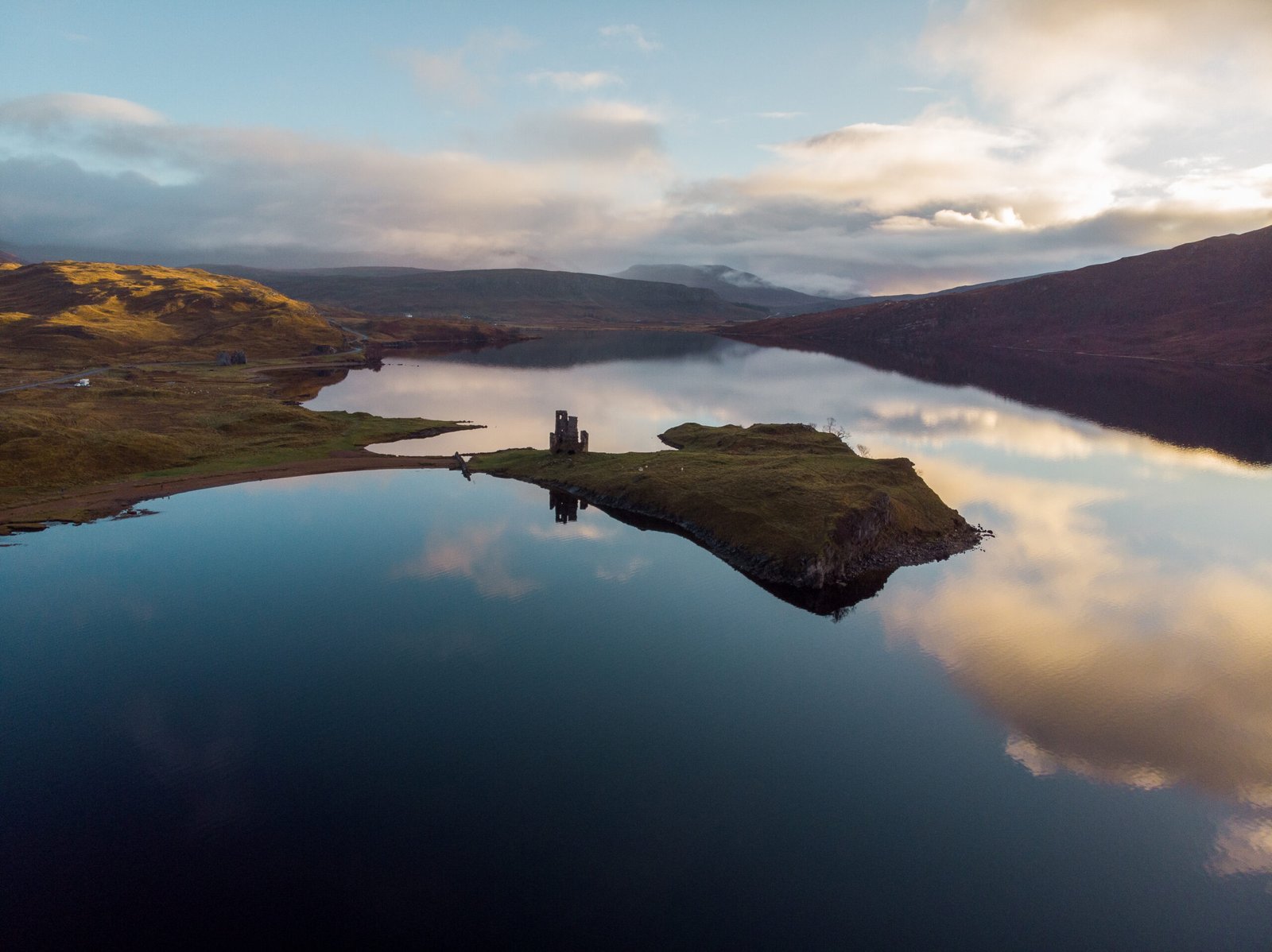
False Pass, Alaska
So, you’re probably thinking, “False Pass, Alaska? What’s that all about?” Well, let me give you the lowdown. False Pass is one of those hidden gems in Alaska that not many people know about. Tucked away on the eastern side of Unimak Island, this tiny city is as unique as they come. With a population of just over 30 people, False Pass may be small, but it’s big on character. Surrounded by stunning natural beauty, from rugged mountains to pristine waters, this Alaskan city is a paradise for nature enthusiasts. So, if you’re looking for an off-the-beaten-path destination that offers tranquility and breathtaking landscapes, False Pass just might be your new go-to spot.

Geography
Location
False Pass, Alaska is a small village located on the eastern end of Unimak Island in the Aleutian Islands chain. It is situated in the eastern Aleutians West Census Area of the state of Alaska. False Pass is the southernmost community on the Alaska Peninsula, making it a unique and remote location.
Climate
False Pass experiences a maritime climate with cool summers and mild winters. Due to its location in the Aleutian Islands, the village is surrounded by the Pacific Ocean and the Bering Sea, resulting in a relatively temperate climate compared to other parts of Alaska. The area is known for its foggy weather and high winds, which are influenced by the surrounding bodies of water.
History
Native Inhabitants
The region around False Pass has been inhabited by indigenous peoples for thousands of years. The Aleut people, who have a rich culture and history, originally occupied the area and relied on fishing and hunting for their subsistence. These native inhabitants developed a deep connection with the land and sea, and their cultural heritage still influences the community to this day.
Russian Influence
In the late 18th century, Russian explorers and traders arrived in the area seeking to exploit the region’s rich fur-bearing animals. As a result, the Russian-American Company established a trading post in False Pass in 1821 as part of their fur trade operations. Russian influence remained strong in the region until the United States purchased Alaska from Russia in 1867.
American Settlement
After the United States acquired Alaska, American settlers began to establish permanent settlements in the area, including False Pass. American fur traders and fishermen were drawn to the abundant marine resources, which contributed to the growth of the village. Today, the descendants of these early settlers and the native inhabitants coexist in False Pass, creating a diverse and multicultural community.
Economy
Traditional Industries
The local economy of False Pass has historically revolved around traditional industries such as fishing, hunting, and gathering. The rich waters surrounding the village provide an abundance of fish and shellfish, including salmon, halibut, and crab. This natural resource has sustained the community for generations, with many residents engaged in commercial and subsistence fishing.
Modern Industries
In recent years, False Pass has diversified its economy to include modern industries. Renewable energy development has become a significant focus, with the construction of wind turbines and other renewable energy infrastructure. The village is also exploring opportunities in ecotourism, capitalizing on its beautiful natural surroundings and unique culture to attract visitors from around the world.
Transportation
Air Travel
Being a remote village, air travel is the primary mode of transportation for most residents and visitors to False Pass. The village is served by the False Pass Airport, which provides regular flights to Anchorage, King Salmon, and other regional hubs. These flights are crucial for connecting the community with the outside world and transporting essential goods.
Marine Transportation
Given its coastal location, marine transportation is another important mode of travel for False Pass. The village has a small harbor, allowing for the arrival and departure of vessels that bring supplies, fuel, and equipment. Fishing boats, ferries, and research vessels also utilize the harbor, supporting the local fishing industry and promoting connectivity with neighboring communities.

Education
School System
False Pass has a small school system that serves the educational needs of the community. The False Pass School, part of the Aleutians East Borough School District, provides education from pre-kindergarten through 12th grade. The school strives to provide a quality education while also incorporating Aleut cultural elements into the curriculum, helping to preserve the heritage of the community.
Post-Secondary Education
Obtaining post-secondary education often requires residents of False Pass to leave the village and pursue opportunities in larger cities. Many students choose to attend universities or vocational schools in Alaska or out of state. Scholarships and financial aid opportunities are available to support students from False Pass in their pursuit of higher education.
Healthcare
Medical Facilities
False Pass has a small clinic that provides primary healthcare services to the residents. The clinic is staffed by healthcare professionals who offer general medical care, emergency services, and routine check-ups. However, more specialized healthcare needs often require residents to travel to regional medical centers or clinics located in larger communities.
Health Services
In addition to the clinic, False Pass offers a range of health services to its residents. These include preventative health programs, mental health counseling services, and support for individuals with chronic illnesses or disabilities. The community works closely with healthcare providers to ensure the well-being and overall health of its residents.

Infrastructure
Utilities
False Pass has essential utilities to support the community’s needs. Electricity is provided through a local power grid, while water and sewage services are managed by the local government. Internet and telecommunications infrastructure is also available, allowing for connectivity with the outside world and access to online resources.
Roads
As an island community, False Pass does not have a road network connected to the mainland. However, within the village itself, there are gravel and dirt roads that provide access to different parts of the community. These roads are used by residents for transportation, as well as by local businesses and service providers.
Housing
Housing in False Pass consists of a mix of traditional and modern structures. Many homes are wooden cabins or small houses, reflecting the historical architecture of the region. In recent years, there has been an effort to improve housing quality and provide more affordable options for residents. The village government works to address housing needs and ensure residents have safe and comfortable living arrangements.
Recreation
Outdoor Activities
False Pass offers a wide range of outdoor activities for residents and visitors to enjoy. The surrounding waters provide opportunities for fishing, boating, kayaking, and wildlife watching. Hiking trails offer a chance to explore the rugged beauty of the island, while the nearby mountains provide options for climbing and mountaineering. The village’s natural surroundings are perfect for outdoor enthusiasts.
Community Events
False Pass has a close-knit community that values social interactions and community events. Throughout the year, various events and gatherings take place, including cultural festivals, fishing derbies, and arts and crafts exhibitions. These events not only provide entertainment but also strengthen the bonds within the community and showcase the unique culture and heritage of False Pass.
Culture
Native Heritage
The culture of False Pass is deeply rooted in its native heritage. The Aleut people have inhabited the area for generations and have passed down their traditions, language, and customs. Traditional practices such as fishing, hunting, and gathering continue to play a significant role in the community, preserving the native heritage and fostering a strong sense of identity among the residents.
Art and Music
Art and music are integral parts of the cultural fabric of False Pass. The community is known for its skilled artists who create intricate traditional crafts such as Aleut beadwork, carvings, and basketry. Music also holds a special place, with performances of traditional Aleut songs and dances being cherished community events. These artistic expressions serve as a way to pass down cultural knowledge and celebrate the unique heritage of False Pass.
Cuisine
The cuisine of False Pass is a blend of traditional Alaskan ingredients and modern influences. Local seafood, including salmon, halibut, and crab, is the centerpiece of many meals. Native traditions continue to influence the cooking techniques and flavors, with smoked and dried fish being popular delicacies. Additionally, the village’s isolation from larger cities has fostered a sense of self-sufficiency, with residents relying on local produce and sustainable food practices.
Tourism
Attractions
False Pass, with its stunning natural beauty and rich cultural heritage, has started to attract tourists in recent years. Visitors are drawn to the village’s pristine coastline, offering opportunities for wildlife viewing and outdoor adventures. The Aleut culture and traditions are also major attractions, with visitors having the chance to learn about the native heritage through guided tours, cultural presentations, and visits to historical sites.
Tourism Development
As tourism continues to grow in False Pass, the community has embraced responsible tourism development. Efforts are being made to promote sustainable practices and ensure that tourism benefits both the local economy and the environment. Community members are actively involved in guiding tourism development, ensuring that it respects and preserves the village’s unique culture and way of life.
In conclusion, False Pass, Alaska, is a remote village with a rich history, stunning natural surroundings, and a vibrant cultural heritage. The community’s economy is based on traditional industries such as fishing, but it is also exploring modern avenues for development. With its unique blend of native traditions and modern influences, False Pass offers residents and visitors an opportunity to experience the beauty and resilience of Alaska’s Aleutian Islands.
